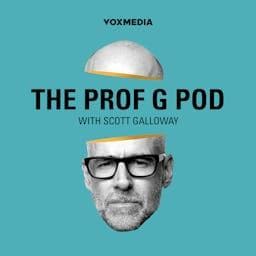Aging may be the last great frontier of precision medicine—not a single disease, but the slow re-patterning of immunity, metabolism, and resilience that determines how well and how long we live.
In this wide-ranging and genuinely mind-bending conversation, Alan Landay and Tom Blackwell make a compelling case that aging itself is finally becoming a legitimate—and testable—target of medicine.
For Landay, the path into aging biology began decades ago through HIV. Antiretroviral therapy transformed HIV from a fatal disease into a chronic one—but something didn’t add up. Patients were surviving, yet developing cardiovascular disease, neurocognitive decline, and metabolic disorders years earlier than expected. The immune system recovered on paper, but inflammation never fully resolved. That realization led Landay to view HIV as a model of accelerated aging, and to ask whether the same inflammatory processes drive aging in the broader population.
As he explains, “we realized that persistent inflammation was the driver—pushing comorbidities forward in time. That’s when HIV stopped being just an infectious disease and became a window into aging itself.”
Over the past decade, Landay has brought the full toolkit of systems biology to that question—proteomics, metabolomics, glycomics, microbiome analysis, and epigenetic clocks—to understand why some bodies grow frail while others remain resilient. A central theme is the gut: age-related changes in the microbiome weaken the intestinal barrier, allowing inflammatory signals to leak into circulation and quietly accelerate biological aging.
Blackwell approaches the same problem from the clinic. As a geriatrician, he sees that most people ultimately die from one of three conditions—heart disease, cancer, or dementia—and that aging is the common denominator behind them all. His bold question is not whether we can treat these diseases individually, but whether we can slow the biological aging process that gives rise to them. That question underpins his ongoing clinical trial testing tirzepatide, a GLP-1–based therapy, not for weight loss, but for its potential to slow aging itself. “
“There is no drug in the world proven to slow aging,” Blackwell says. “We haven’t proven this one either—but we’re finally running the experiment that can give us a real answer.”
At the heart of the discussion is a shared fascination—and healthy skepticism—around aging clocks and biomarkers. Both researchers are using advanced epigenetic and proteomic clocks, including the DunedinPACE measure, to track whether interventions truly change the rate at which people age biologically. The clocks are powerful, but not yet definitive.
The episode also explores how geroscience has moved from the fringe to the mainstream: NIH-wide initiatives, ARPA-H funding, repurposed drugs, and growing FDA openness to aging as a trial framework. Rather than chasing immortality, both guests emphasize healthspan—more years of mobility, cognition, and social engagement.
“Our vision isn’t to live longer in a nursing home. It’s having a lot more 98-year-olds who drive themselves to clinic, go on dates, and still love their lives,” says Blackwell.
This is a public episode. If you'd like to discuss this with other subscribers or get access to bonus episodes, visit www.mendelspod.com/subscribe


































